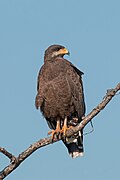Reconstruction:Proto-Turkic/ārï
Hello, you have come here looking for the meaning of the word Reconstruction:Proto-Turkic/ārï. In DICTIOUS you will not only get to know all the dictionary meanings for the word Reconstruction:Proto-Turkic/ārï, but we will also tell you about its etymology, its characteristics and you will know how to say Reconstruction:Proto-Turkic/ārï in singular and plural. Everything you need to know about the word Reconstruction:Proto-Turkic/ārï you have here. The definition of the word Reconstruction:Proto-Turkic/ārï will help you to be more precise and correct when speaking or writing your texts. Knowing the definition ofReconstruction:Proto-Turkic/ārï, as well as those of other words, enriches your vocabulary and provides you with more and better linguistic resources.
Proto-Turkic
Alternative reconstructions
Etymology
Räsänen reconstructs this root as *hārγï, which is then compared with Finnish paarma (“horsefly, gadfly”).
Chuvash and Kipchak languages at large seem to have adopted the compound *bal-kūrtnï (literally “honey maggot”) instead of *ārï.
Noun
*ārï
Declension
| singular 3) | |
|---|---|
| nominative | *ārï |
| accusative | *ārïg, *ārïnï1) |
| genitive | *ārïnïŋ |
| dative | *ārïka |
| locative | *ārïda |
| ablative | *ārïdan |
| allative | *ārïgaru |
| instrumental 2) | *ārïn |
| equative 2) | *ārïča |
| similative 2) | *ārïlayu |
| comitative 2) | *ārïlïgu |
1) Originally used only in pronominal declension.
2) The original instrumental, equative, similative, and comitative cases have fallen into disuse in many modern Turkic languages.
3) Plurality in Proto-Turkic is disputed. See also the notes on the Proto-Turkic/Locative-ablative case and plurality page on Wikibooks.
2) The original instrumental, equative, similative, and comitative cases have fallen into disuse in many modern Turkic languages.
3) Plurality in Proto-Turkic is disputed. See also the notes on the Proto-Turkic/Locative-ablative case and plurality page on Wikibooks.
Descendants
- Arghu:
- Khalaj: hârı
- Oghuz:
- Karluk:
- Kipchak:
- Siberian Turkic:
See also
| Animals in Turkic | |||||
|---|---|---|---|---|---|
 |
dog: *ï̄t |
 |
hunting dog: *eker |
 |
hen: *tiakïgu |
 |
lark: *torgay |
 |
dove, pigeon: *kȫkerčin |
 |
quail: *bïldurčïn |
 |
sparrow: *serče |  |
hawk, falcon: *kïrguy |
 |
goose: *kāŕ |
 |
wolf: *bȫrü |
 |
cow: *ingek |
 |
calf: *buŕagu |
 |
camel: *tebe |
 |
young of camel: *kȫĺek, *botu |
 |
horse: *at |
 |
foal: *kulun |
 |
worm: *kūrt |
 |
snake: *yï̄lan |
 |
fox: *tilkü |  |
goat: *keči |  |
he-goat: *teke |
 |
lion: *arsïlan |
 |
fish: *bālïk | carp bream: *čapak | |
 |
donkey: *eĺčgek |  |
carp: *siāŕgan |  |
catfish: *yāyïn |
 |
beaver: *kunduŕ |  |
hedgehog: *kirpi |  |
badger: *borsmuk |
 |
fly, mosquito: *siŋek |  |
wasp, bee: *ārï |  |
gadfly: *bȫgen |
 |
moth: *küńe |  |
louse: *bït |  |
earthworm: *sïbuĺgan |
 |
yak: *kotuz |  |
colt: *sïp |  |
dragon: *siāŕgan |
 |
worm: *kūrt |  |
deer: *keyik, *sïgun, *bulan, *bugu |  |
lizard: *keleŕ |
References
- ^ al-Kashgarî, Mahmud (1072–1074) Besim Atalay, transl., Divanü Lûgat-it-Türk Tercümesi (Türk Dil Kurumu Yayınları; 521) (in Turkish), 1985 edition, volume 1, Ankara: Türk Tarih Kurmu Basımevi, published 1939–1943, page 87
- Clauson, Gerard (1972) “arı:”, in An Etymological Dictionary of pre-thirteenth-century Turkish, Oxford: Clarendon Press, →ISBN, →OCLC, pages 196, 197
- Räsänen, Martti (1969) Versuch eines etymologischen Wörterbuchs der Türksprachen (in German), Helsinki: Suomalais-ugrilainen seura, pages 25, 26
- Starostin, Sergei, Dybo, Anna, Mudrak, Oleg (2003) Etymological dictionary of the Altaic languages (Handbuch der Orientalistik; VIII.8), Leiden, New York, Köln: E.J. Brill

